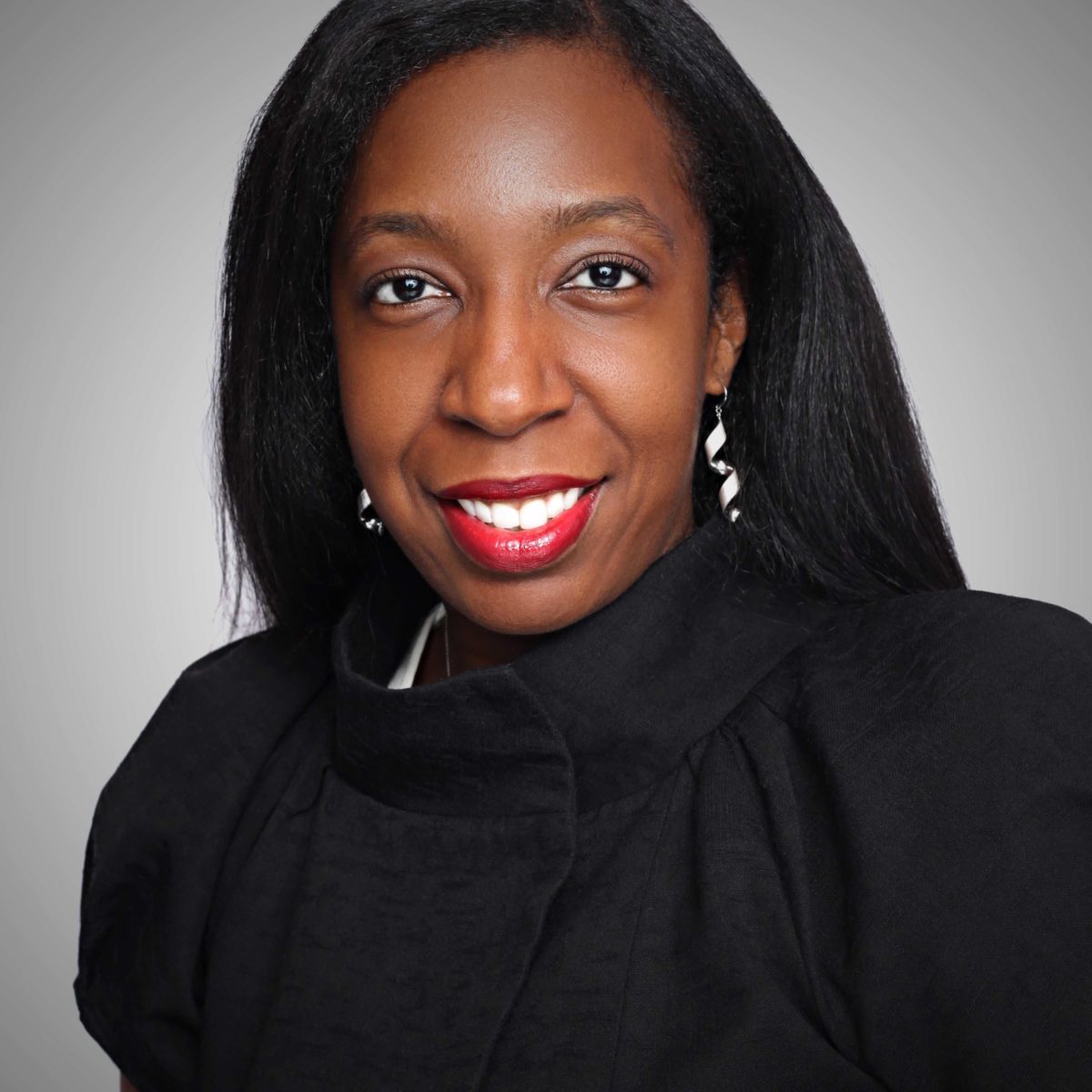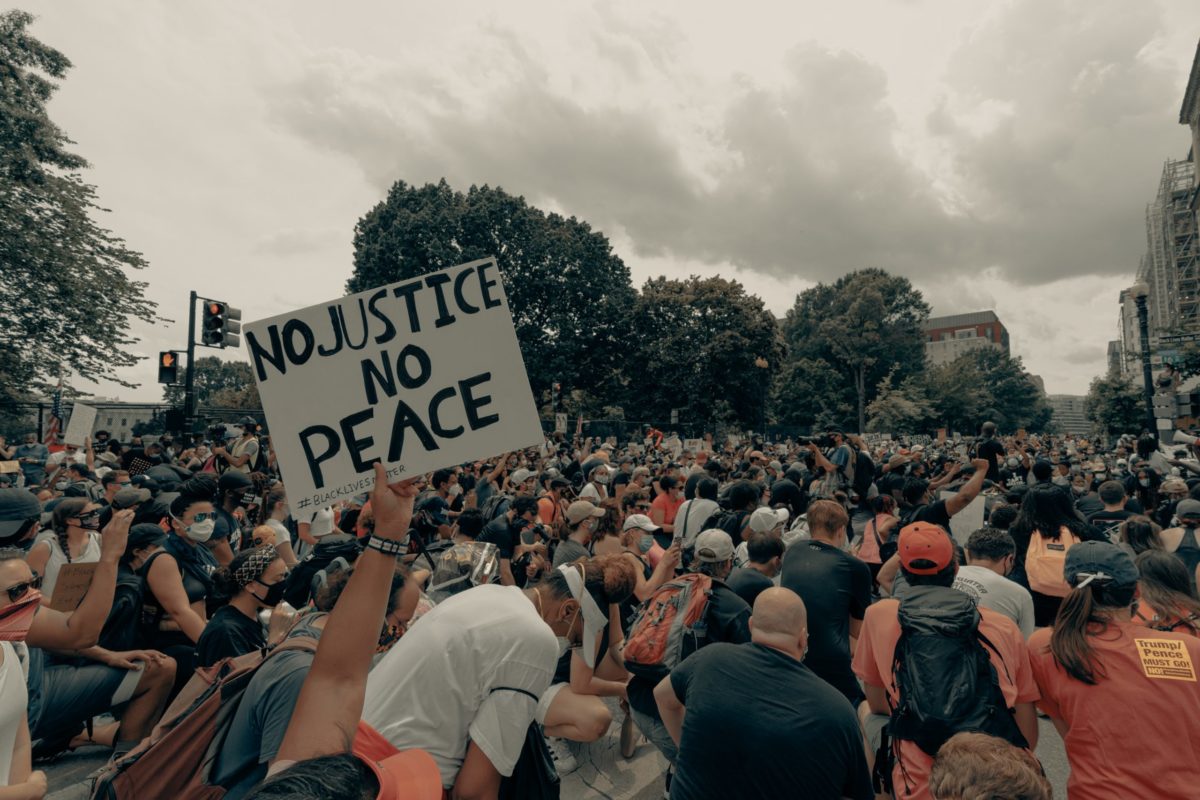So much is happening in our country right now. We’ve witnessed the back-to-back killings of unarmed Black people by the police and white vigilantes. We sorrowfully mourn the new names Breonna Taylor, Ahmaud Arbery, George Floyd and most recently Rayshard Brooks.
As a Black woman it is heavy to witness new videos surface every day of police brutality, unnecessary arrests, and excessive force. However, these atrocities are not new, and have been occurring long before video captured and CNN broadcasted. As such, we have the right to protest systemic racism and government-sanctioned violence. We have the right to be angry at the inequality, discrimination and injustice. We have the right to mobilize and strategize to effectuate real change for ourselves and the Black community as a whole.
As thousands pour into the streets all across the country and even around the world, the call to action is the same: No Justice, No Peace.
As a lawyer, I think about the limited access to justice Black people experience in the American legal system, and how we are acutely underserved and most susceptible to systemic manipulation. Although most people tend to be intimidated by the legal system, Black people are even more hesitant to proactively engage the courts. On top of everything, the current lawyer search process can be overwhelming at best and inconclusive at worst. Now more than ever, the role of Black lawyers is critical to the advancement of defending Black lives when others fail to hear the call to duty.

Kisha A. Brown (Courtesy photo)
This pervasive gap between those seeking legal counsel and Black lawyers leaves Black communities vulnerable and perpetually underserved in the law. The gap also exists with the business community, where leaders often claim they are not able to find any Black attorneys to hire. Yet at barely 5% of the legal industry and only 1.97% of law firm partners, Black lawyers struggle to advance. They often work twice as hard to experience half the monetary success as their white counterparts.
When we talk about supporting Black businesses, most publicity goes to restaurants and retail. There is a dearth of attention given to Black lawyers, who play a critical role in effectuating change in our society.
The Black lawyer has traditionally been the bridge to justice for members of the Black community. When Baltimore’s own Thurgood Marshall came out of law school, the Black community knew they had an advocate and he knew he had clients that would come from his own community. Likewise, the Black lawyer is also a valuable member to have on any business team. They provide not only legal insight but are culturally competent to offer a diverse perspective sorely missing at many corporate tables today.
The law is long overdue for bold ideas to transform how the public accesses legal assistance and information in a uniquely personal manner.
Knowing this reality, I too often was asked for legal referrals and didn’t have a ready answer. So, I decided to build the largest inventory of Black lawyers in the country, starting right here in D.C., Maryland and Virginia. At Justis Connection, we’re changing how people look at the courthouse and engage the legal system. We are a compelling force for good in the world, as we build a network of real-life legal eagles and authentic voices. We’re building our own Justis League utilizing technology to make a more personalized match between lawyer and potential client.
Where most online legal referral services operate in quantity, delivering hundreds of responses to a simple legal query, we know our new world normal will require technology to play an even more crucial role in keeping us all connected and informed. Although the legal industry has been reluctant to update its systems and practices with a more technological approach, the only way for the legal profession to remain accessible is to bridge gaps that pen and paper cannot reach. The law is long overdue for bold ideas to transform how the public accesses legal assistance and information in a uniquely personal manner.
Being a Black female legal tech founder on the East Coast, I find few folks who are engaged in this field who look like me. I’ve already experienced being told I “wasn’t a good fit” for a tech group, and my company wasn’t “tech enough.” Even after participating in the highly selective LexisNexis Legal Tech Accelerator program, I continue to face isolation and rejection in the tech world. This doesn’t worry me, though, since combining law and tech means bringing together two of the least diverse and competitive industries for the common good: increasing access to justice.

This guest post is a part of Racial Equity Month of Technical.ly's editorial calendar.
Before you go...
Please consider supporting Technical.ly to keep our independent journalism strong. Unlike most business-focused media outlets, we don’t have a paywall. Instead, we count on your personal and organizational support.
Join our growing Slack community
Join 5,000 tech professionals and entrepreneurs in our community Slack today!

The person charged in the UnitedHealthcare CEO shooting had a ton of tech connections

From rejection to innovation: How I built a tool to beat AI hiring algorithms at their own game

Where are the country’s most vibrant tech and startup communities?


